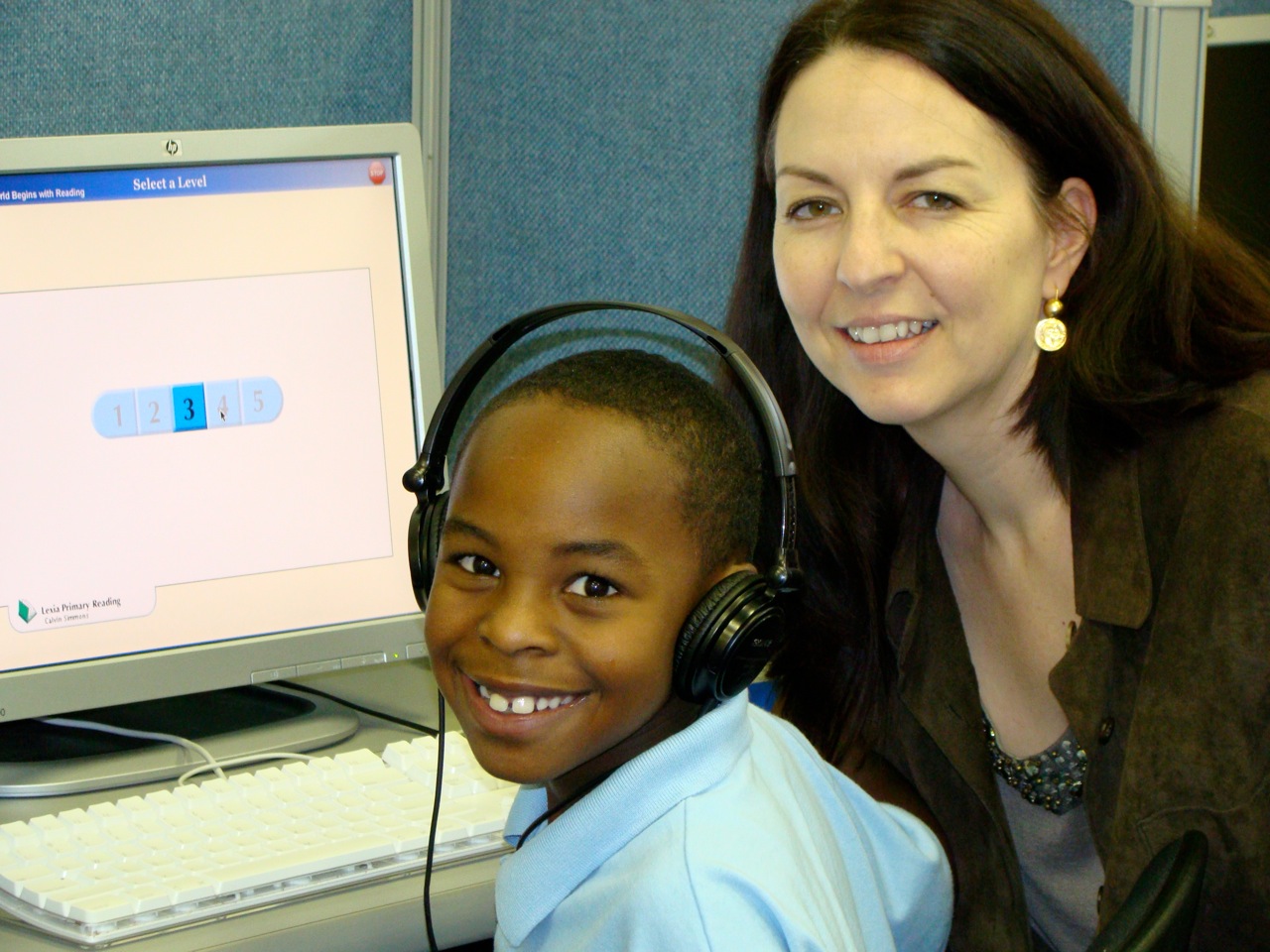
by PRIDE Reading Program Admin | Jan 18, 2016 | A PRIDE Post, ADHD, Executive Functioning Skills
By Valerie Maxwell Ph.D.
What does the Factors of Attention mean? The area of the brain known as the pre-frontal cortex takes responsibility for the “executive functioning” of the brain. This is the “thinking brain” which must make decisions, keep track of time, assimilate what is being told, seen or taught, and organize information with prioritization in order to be processed by the brain. This is how we “think about our thinking” so we can function efficiently in the world. Efficiency in our lives helps to create happiness in ourselves and respect from others.
In order to fulfill these executive functions, the brain must have accurate input. Paying attention to what is seen, heard, touched, smelled, and tasted is the way the brain receives this input. According to experts (Reid Lyon) there are 5 parts of paying attention:
- FOCUSED OR SELECTIVE ATTENTION: We need to be able to select the most important information and to ignore the input that is not needed at that time. For example, listening to the teacher’s directions and ignoring a friend kicking your chair is vital to success.
- SUSTAINING ATTENTION: Maintaining awareness is essential to helping us focus on our goal or task. Sustained attention is critical to completing the job, whether that is homework or cleaning your room.
- SHIFTING ATTENTION: Flexibility of attention is key to our ability to change, to grow, and to multitask so that we get everything done that we need to do. Playing Nintendo for 20 minutes and then getting back to the homework is not possible without this flexibility.
- ATTENTION FOR ACTION: We need to be able to route the input to the appropriate brain sites in order to put all the information together so that it comes out at the right time, in the right order, and in socially appropriate ways. This function involves SEQUENCING and PROCESSING the information.
- DIVIDED ATTENTION: Being able to attend to several things at the same time without getting distracted is key to keeping all the balls in the air that modern life demands of us. The child must remember his study-buddy’s phone number, focus on his internet project, and listen with acknowledgement to his mother asking him to call his father in for dinner.
“Although there is a solid core of scientific evidence indicating that speaking and listening have a biological foundation, the human capacity for reading and writing does not.” (Maureen Argus, The ADHD Challenge, March/April 2000). In order for a child to speak, read, listen to the teachers, or write, that child must have developed the ability to pay attention in all ways. Children with ADHD and many with learning disabilities related to cognitive deficiencies have attentional problems. Without proper attention, reading and writing cannot be assumed.
There are 5 senses (i.e., hearing, vision, touch, smell, and taste) that need to be in attention at all times. However, most often in school the child must rely on her ability to hear and see. When we talk about a child’s auditory or visual processing skills, we are talking about a child’s ability to use all of the above 5 attention functions in order to understand, think critically, and to produce results. This is processing.
Getting all the input out (whether it’s on paper or in an oral report) is not enough. The output must be in the right order. This is sequencing.
Learn more about the New PRIDE Reading Program
________________________________________________________________________________________
Dr. Valerie Maxwell is a clinical Psychologist in Manhattan Beach, CA and a frequent speaker at CHADD meetings in Southern California.
by PRIDE Reading Program Admin | Feb 6, 2015 | A PRIDE Post, ADHD, Autism
Well, it depends…
The scientific literature abounds with studies claiming to have discovered evidence one way or the other. This often contradictory information can be confusing, but some themes seem to be consistent, and more importantly, to make sense.
For example, there is some correlational evidence that violence in video games may increase aggression in certain vulnerable kids. We believe that kids with excessive anger are attracted to violent games. For these kids, violent games may teach unhealthy conflict resolution skills, glorify aberrant or subversive lifestyles, or desensitize kids to terrible events. Parents should be particularly concerned if a child’s level of aggressive behavior is consistently higher after playing.
On the flipside, there is also evidence that playing video games can act as a healthy outlet for aggressive impulses. Kids who play video games often say that the games help them relax or cope with stress. Violent video games might offer an alternative outlet for aggressive and angry feelings by providing a vicarious, and less destructive, experience of testing limits. In addition, gaming can build self-esteem, provide a sense of accomplishment, and improve socialization. It is unusual, for boys in particular, to not play video games. The shared experience of overcoming certain gaming challenges acts to help some children bond. Game play is often a normal social activity for boys, and lack of interest in social gaming may signal social difficulties.
So if all of this is true, how should parents manage video games in their child’s life? I believe that, for most children, a balanced approach is best. Many kids can use video games in moderation as a healthy tool in their play toolbox. Some children will need their parents to provide structure and moderation for them. For these kids, it is best to make the limits very clear. Parents may want to place a time limit on the game, or a contingency like “you may play for 1 hour after all of your homework and chores are done.” I would also suggest that parents actually play video games with their child. This provides many benefits, not the least of which is forging a stronger bond with your child.
You can also use the time to guide and mentor your child in his or her play. Explain situations or themes that he or she may not understand, or might misinterpret. Use the opportunity to discuss morals and values; parents often underestimate the impact of their words and actions on their child’s beliefs. There are currently several games offering, as a central theme, the moral development of the main character (Fable, Infamous, etc). Use these games as a launching point for discussions about morals.
Playing games with your child also affords you the benefit of a first hand look at the content of your child’s game. Parents can also refer to each games rating from the ESRB (Entertainment Software Rating Board) for a rough guide to a game’s content. Pay particularly attention to games rated “M” as these are intended for people age 17 and above. Your game console, or computer, should have the ability to restrict certain types of games based on that game’s rating.
These suggestions are general, and should work well for most people. For children with significant behavior or emotional problems, the decision to use or exclude video games should be made carefully with attention paid to the potential risks and benefits such a move would have. Allowing the child to use video games, particularly violent games, may increase their aggression, while forbidding the use of their game could remove one of the child’s only sources of self-affirmation and competence.
Some parents have complained to me that their child seems “addicted to their video game”. They spend an excessive amount of time playing alone, and even ignore fun and engaging alternatives. They may not even enjoy playing the game that much, instead they use it to escape from pain or conflict in their lives. In many of these cases, the issue is not the video game itself, but rather the child’s inability to use alternate coping strategies to manage emotional or social problems. If you suspect that your child is suffering from problems like these, I suggest seeking help from a professional in children’s mental health.
Stephen Morris, M.D.
Doctor Morris is an Adult, Child, and Adolescent Psychiatrist operating a private practice in Manhattan Beach, California. For more information, please contact him through his website at https://www.StephenMorrisMD.com

by PRIDE Reading Program Admin | Mar 5, 2012 | News & Events
Our summer program is our most popular program of the year. Pride’s teachers are all credentialed and certified in Orton-Gillingham methodology. Pride programs are always taught one-on-one.
Pride’s fun-filled yet intensive one-on-one reading program has become so popular that we even draw families from all over the globe. Recent students have come to Pride from China, Japan, Saudi Arabia, France, England, Canada and even the San Fernando Valley.
Sample Daily Schedule:
9:00 – 10:00: Orton-Gillingham Reading Instruction
10:00 – 10:30: Computer Based Reading Instruction
10:30 – 11:00: Snack, Fun and Movement
11:00 – 11:30: Written Expression
11:30 – 12:00: Orton-Gillingham Reading Instruction
Times:
9:00am – 12:00pm or 1:00pm – 4:00pm Monday – Friday
Our Summer 2012 program runs weekly from June 25th – August 31st. You can sign up for any weeks you like during those dates.
Tuition is $980 weekly
Take advantage of our Discounts!
- 10% off early registration by April 31, 2012
- 10% off for returning families
- 20% off for bringing a friend
- 15% off if you register for 4 or more weeks
Space is limited and our summer sessions fill up quickly.
Call us today at 866-774-3342 to request a registration form. Or email us at info@pridelearningcenter.com

by PRIDE Reading Program Admin | Aug 29, 2011 | A PRIDE Post, ADHD
by Dr. Andrew McIntosh
For some reason, the discussion of fish oil supplementation conjures up images of a mountebank peddling a potion at an old-style country fair. Indeed, the idea of fish oil supplementation to treat a variety of ailments has been around for many decades. Recently, fish oil has received a great deal of attention in the lay media and professional medical literature for the treatment of behavioral disorders such as ADHD.
After diagnosing a child with ADHD and transitioning to talking about treatments, I often start to feel a bit of tension in the room as parents start to think “I know he’s going to recommend medications and as a family we are not prepared for that”. However, before launching into a discussion of different pharmacotherapies for ADHD, it is important to consider nonmedical management. For example, behavior modification strategies have been adequately studied and proven to be beneficial for many children with ADHD. Three less frequently discussed ADHD treatments which I touch upon during my consultations are essential fatty acid (such as contained in fish oil) supplementation, sleep habits and basic dietary changes.
From scientific studies of essential fatty acids (EFAs) and ADHD we know that (1) individuals who have ADHD may have low levels of EFAs and (2) essential fatty acid supplementation may normalize EFA levels in children with ADHD. The clinical significance of this is somewhat less clear; however, most studies provide evidence of lessening ADHD symptoms. As with most scientific studies, there are concerns with study design and confounding factors but the current body of medical literature generally supports the use of essential fatty acid supplementation in children with ADHD.
The benefit of essential fatty acid supplementation for children with ADHD has been adequately established. However, the next question is “What are the associated risks?”. Fortunately, when used in recommended dosages, there are few potentially serious side effects associated with essential fatty acid supplementation. Reported side effects include: Fishy aftertaste (if the product is made from fish oil), nausea, bloating, or burping. Less common, symptoms of a serious allergic reaction, including: rash, itching/swelling (especially of the face/tongue/throat), severe dizziness or trouble breathing may occur. Overall, fish oil supplementation is well tolerated.
There are several commercially available children’s formulations which provide an adequate dosage in a palatable form. The studies evaluating essential fatty acid supplementation for ADHD may serve as a dosing guideline. The three most compelling studies used 500-600mg of Omega-3 fatty acids in a balanced Omega 3, 6, 9 formulation. To keep things simple for my families, I recommend a fish oil-based, balanced product containing Omega 3, 6 and 9 fatty acids with 500-750mg of Omega 3 fatty acids from a high quality manufacturer. Products from Nordic Naturals and other high quality manufacturers are available at local markets (such as Mother’s and some Henry’s markets) and online. If children are not able to swallow the generally large capsules, palatable (“no fishy taste”) children’s formulation liquids and “gummies” are available.
Purchasing guidelines:
Children’s formulation
Fish oil-based product (rather than plant-based)
500-750mg of Omega-3 fatty acids
Balanced Omega 3, 6, 9 product
High quality manufacturer (such as Nordic Naturals)
As evidence in scientific studies continues to build, essential fatty acid supplementation is gaining broader acceptance by mainstream physicians. The current medical literature is generally supportive of the benefit for children with ADHD and the common side effects are relatively mild. For families with children affected by ADHD, essential fatty acid supplementation should be considered an important component of a comprehensive treatment plan.
________________________________________________________________
Dr. Andrew McIntosh is a fellowship-trained pediatric neurologist and is highly skilled in behavioral/developmental disorders (including early autism spectrum diagnosis) and general pediatric neurology. If you have any questions or would like information about scheduling an appointment with Dr. McIntosh, contact his office at (949) 249-3780 or visitwww.mcintoshneurology.com for more information.

by PRIDE Reading Program Admin | Feb 22, 2011 | A PRIDE Post, Auditory Processing Disorder, Autism
Many of our students at Pride Learning Center have been diagnosed with auditory processing difficulties due to CAPD, ADHD, dyslexia, autism, or a learning disability. Often parents will ask me the question, “what can I do at home to help?” I have composed a list of activities that strengthen and support auditory processing deficits that are simple, quick and easy to incorporate at home.
a
1. Listen for Sounds. Have your child sit at your desk, close their eyes and identify sounds that you make. You can drop a pencil, bounce a ball, tap on the window, tear a paper, use a stapler, cut with scissors, open the door, type on your computer, sip a cup of coffee or write with a marker. Trade roles and then let the child make different sounds that you have to identify.
2. Take a Nature Walk. Sit outside under a tree and listen for various sounds outside of the house. Sounds like birds chirping, airplanes flying overhead, cars driving by, voices of children playing are fun to identify. You can have a little notebook on hand and keep a list of all of the different sounds you came across.
3. Repeat a Pattern. Sit across from your child and clap your hands to a rhythmic pattern alternating between slow and fast tempos. Have your child repeat the pattern. You can also use various instruments, play a drum or bounce a ball to a variety of rhythms. Switch roles and let your child be the sound leader as well.
4. Hide and Seek. Hide a metronome or a ticking clock somewhere in your home. Have your child find it by locating the sound. Another variation of this game can be played outside. You can hide somewhere and blow a whistle. The child will then follow the sounds to find where you are hiding.
5. Sing Songs. Sing songs together that involve repeating previous verses, such as “Old MacDonald Had a Farm”, “Over in the River”, “The Twelve Days of Christmas” and “The Green Grass Grows All Around.”
6. Read Rhyming Books Together. For beginning readers, repetitive and rhyming books help children listen carefully to the similar sounds of rhyming words. Some great rhyming books are “Hop on Pop”, “Fox in Socks”, “Goose on the Loose” and “Goodnight Moon.”
____________________________________________________________________________________
Karina Richland, M.A., E.T. is the Managing Director of Pride Learning Centers, located in Los Angeles and Orange County. A former teacher for Los Angeles Unified School District, Ms. Richland is a reading and learning disability specialist. Ms. Richland speaks frequently to parents, teachers, and professionals on learning differences, and writes for several journals and publications. You can reach her by email at karina@pridelearningcenter.com or visit the Pride Learning Center website at: www.pridelearningcenter.com




